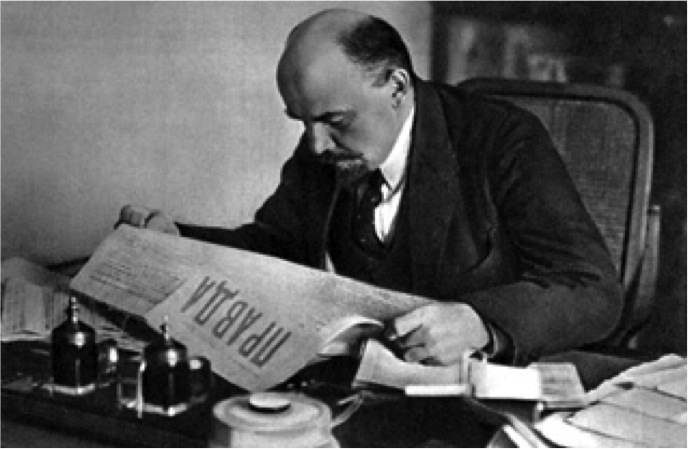ii.
Marx changed the relationship between politics and philosophy by creating a hinge out of the social sciences. This hinge has worn thin. Today’s philosophically naive social sciences purport to be objective as they splinter reality into self‐referential, academic disciplines that argue from present‐day “givens” as a quasi‐natural base (rather than dynamic, unstable structures that depend on human action). For its part, philosophy, going it alone, retreats to the humanities—to normative thinking, an analysis of reason and the Kantian world of moral oughts, or, alternatively, to a Nietzschean‐inspired anti‐rationalism, the celebration of affect, cultural relativism, literary narativity, hermeneutic contingency. Even critical philosophy shares with the positivist sciences from which it has cut itself off the presumption that it can know reality on its own. Both approaches ‐ thought without empirical understanding and empirical understanding without thought, without critical reflection—are extremely susceptible to reification.
Meanwhile, Marxism, orphaned by both sides of the academic project, the sciences and the humanities, risks dogmatism if it claims to provide knowledge beforehand (a priori) of the political meaning of events on the basis of century‐old texts, fitting every empirical factoid into its preexisting interpretive frame. As the master‐code of history, Marxism grants to an anthropomorphized capitalist system all‐powerful agency. Capitalism masterminds events, exploits voraciously for private gain, delights in crisis, all the while thwarting our best moral intentions, determining historical outcomes with a cleverness far greater than any Hegelian cunning of reason could provide.
Marx, as everyone knows, used the term capitalism only a handful of times. The big book is called Capital. And it is a critical exposure of the economic practices of his time, including the processes of fetishism and reification that make it appear that the laws of capital are our necessary fate.
Now I am going to make a tedious point: Due to the epistemological consequences, we need to reject creating an –ism out of any political or theoretical orientation. No communISM, no capitalISM, no MarxISM, no totalitarianISM, no imperialISM,– no isms at all.12 These are cosmological systems, economies of belief that resemble the medieval Christological economy (oikonomia) in that all the elements are internally consistent and logically satisfying, as long as there is no contamination by facts or events that, like some sort of illegal aliens, enter from the outside. The simple words – communist or socialist, capitalist or Marxist, etc. are a different story. If they are used merely as descriptive adjectives, they refer to qualities (determinations) of objects in the world, which they define – objects that, if we are to be consequent materialists, must have priority over the concepts we use to name them.13
Political practice, too, is vulnerable to seduction by the –ism. It is a mistake to adopt anarchISM or socialISM, TrotskyISM or IslamISM, radicaISM, or parliamentarianISM as a system of belief determining one’s actions in advance. Conditions change, and practice needs to respond to new situations. Seize state power so as to control its ideological apparatuses? Yes, but what if, after the global transformation of capital, the state itself has become an ideological apparatus? Base one’s politics on an anarchist respect for democratic agency? Absolutely. But not if that means yielding to the manipulative tactics of right‐wing populism in its increasingly widespread forms.
To say, with Althusser, that Marx abandoned his early humanism for a “science of history” implies that Marxist science is trans‐historical and eternal, an ontological first principle immune to precisely the historical specificity on which it insists – as if science were not itself historical. (We have only to think of the historical limits of the science of Ricardo or Malthus, or, given the present crisis, the Chicago School of economics, to make that point clear.) To argue, with Negri, for a “historical ontology” based on a scientific understanding of the process of capitalist class struggle is a dubious alternative. Negri wants to add historical contingency to the mix, at the same time counting on an ontological fix to avoid the dangers of relativism that contingency implies. He does not let go of the class struggle as the prima philosophia, the philosophic first principle, on which the whole political project is grounded. But if, pace Negri, there can be no ontology of history, it is because history is the realm of human freedom, and therefore the realm of the unpredictable ‐ in thought as well as in practice. At this point, rather than trying to develop an ontology of freedom, we need to recognize freedom’s surprising, and fleeting appearance in the world.
I am showing my true colors. I am an incorrigable pragmatist when it comes to critical theory. But that is not pragmatISM, in Rorty’s or even Dewey’s sense (and it has nothing to do with being an American). It is closer to what Bert Brecht described (and admired) as plumpes Denken – non‐elegant thinking. So, for example, where the elegant philosopher would discover a concept by searching for the classical Greek meaning of a term, I take my lead from modern Greek, demotiki, the street language of the people (demos), that, along with the so‐called fiscal irresponsiblity of the Greeks themselves, is largely disdained by the European intelligentsia. Ta pragmata in modern Greek refers to the practical things that you use in daily existence. In German: die Klamotten, in the sense of the stuff ‐ it might look like junk to others, but it’s the stuff that you need and use every day.
Deployed in this sense, a pragmatic approach to doing theory bears a resemblance to the point that the Nigerian novelist Wole Soyinka made when he criticized the understanding of Nègritude as ontology by saying: “A tiger does not proclaim its tigritude, he pounces.” He later clarified: “a tiger does not stand in the forest and say ‘I am a tiger.’ When you pass where the tiger has walked before, you see the skeleton of a duiker, you know that some tigritude has emanated there.”14 (Images 1 and 2.)
Soyinka abandons ontology for something close to what I mean by a theoretical pragmatics.15 It is a practice of theorizing whereby things acquire meaning because of their practical, pragmatic relationship with other things, and these relationships are constantly open, constantly precarious. Their future cannot be predicted in advance. Now if we were interested only in the empirical science of tiger practice, we would be behavioralists, observing from a safe distance what a tiger does. But as political actors in the midst of things, we are duikers, and duikers need to know the latest news.
Can we imagine Lenin without a newspaper? (Image 3). Or Marx, or Hegel, for that matter? Marx wrote for newspapers about events far away from Europe—colonialism in India, China trade, the U.S. Civil War. And Hegel was formulating the dialectic of master and slave because of the Haitian Revolution that he read about in successive issues of the political periodical, Minerva.
Lenin, let us remember, did not expect the revolution would happen
a) in Russia at all
b) in the summer, or even fall of 1917.
But he allowed his theory to yield to historical developments as they actually occurred.16
The historical event that surprises – this is the “radical reality” to which Lenin
remained open.17 Here I am in total agreement with Badiou regarding the political centrality of the event, and on the same page as he, when he stresses “the absolute unpredictability of the event” that “can be the source of the emergence of the radically new.”18 But I would take liberties with Lacan’s formulation in ways that Badiou does not. It is not “truth” that “punches a hole in knowledge.” Rather, it is social action. And the truth that such action reveals is the possibility of human freedom. So, if we put together the idea of pragmatics and the idea of the event, we get: a pragmatics of the suddenly possible as an expression of human freedom. And that is not a bad definition of what commonist ethics would imply.
Spoken in the inelegant language of plumpes Denken, then, the philosophically infused questions that a pragmatics of the suddenly possible would need to ask are these:
- What’s Happening? (the pragmatic alternative to “historical ontology”)
- What’s New? (Is there an “event” going on here?)
- What Gives? (What structures of power are suddenly yielding to the actors in the event)
- What’s Going On? (Are certain structures NOT in the process of change?)
And only then do we get to the Big Question:
- WHAT TO DO? (“What is to be Done?” is the wrong translation of Что делать?).
We might tarry over these questions for a while to view them in a commonist mode.
12 I am grateful to Ahmad Jalali of Iran for gently questioning my choice of the title for my book, Thinking Past Terror: Islamism and Critical Theory on the Left, on precisely these grounds.
13 Cf. Adorno’s insistence on the priority of the object (Vorrang des Objekts).
14 Soyinka, cited in Refusal of the Shadow, Surrealism and the Caribbean, London: Verso, ed. Michael Richardson. (Introduction) p. 10.
15 Of course, Achille Mbembe is absolutely right to point out that Nègritude was not a philosophy of first principles but a fully engaged political practice. We have to acknowledge that the writers who theorized Negritude were engaged in a pragmatics of counter‐hegemony with real institutional and political effects (Achille Mbembe, seminar, Committee on Globalization and Social Theory, CUNY Graduate Center, September, 2011). See also Ngugi wa Thiong’o, Globalectics: Theory and the Politics of Knowing (New York: Columbia University Press, 2012), p. 23.
16 See the book by Lars T Lih, Lenin Rediscovered: What is to Be Done? In Context (London: Haymarket Books, 2008) on his trust of the workers, especially German Social Democrats, when he wrote this pamphlet. Many argue that the Russian Revolution came too early and therefore failed. Perhaps, instead, the too‐early years of the Bolshevik revolution are the most relevant, in that their practices have never ceased to inspire: the aesthetic avant‐garde, the street theatre, agitprop trains, the world‐wide general strike of 1919 that was one of the earliest, largely spontaneous acts of global solidarity. In the US, Eugene V. Debbs responded to Lenin’s victory by exclaiming: “From the top of my head to the bottom of my shoes, I am a Bolshevik, and proud of it!” In 1920 ran for President from jail as the Socialist Part candidate and won a million votes. The journalist Victor Berger posted on billboards: “War is Hell Caused by Capitalism” – and was elected the first Socialist candidate elected to U.S. Congress. Convicted, like Debbs, under the Espionage Act, he was denied the Congressional Seat into which he was twice voted by the electorate.
17 V. I. Lenin, cited in Robin Blackburn, ed., After the Fall: The Failure of Communism and the Future of Socialism (New York: Verson, 1991), p. 167.
18 Alain Badiou, Being and Event, trans. Oliver Feltham (New York: Continuum, 2005).







Pingback: Susan Buck-Morss, “Sometimes to progress means to stop, to pull the emergency brake” | The Committee on Globalization and Social Change